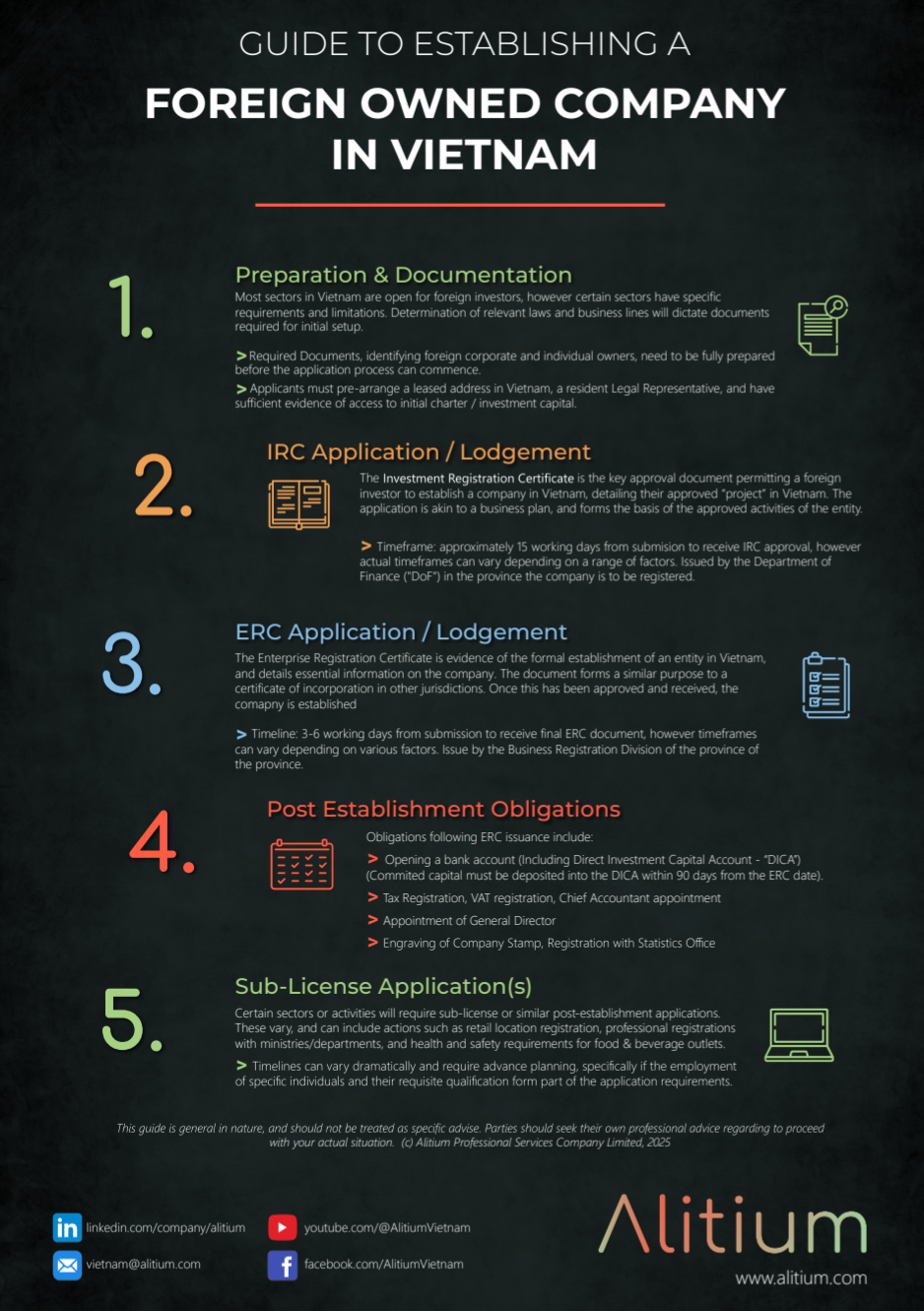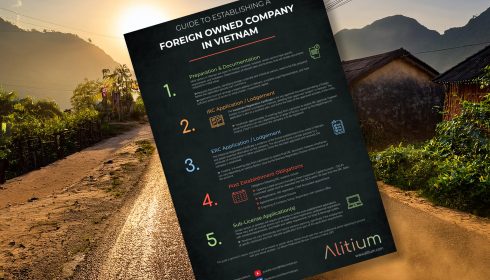Guide to Establishing a Company in Vietnam (2025)
Setting up a company in Vietnam can be highly rewarding, but the process is complex and requires a clear understanding of local laws, approvals, and compliance obligations. Foreign investors must navigate multiple steps, approvals, and ongoing requirements to ensure their business is properly established and compliant from the start.
At Alitium, we have prepared the Vietnam Company Establishment Guide 2025 to help investors and business owners understand the practical process for forming or incorporating a company in Vietnam. Below is a summary of the key steps and requirements, drawn directly from the guide.
1. Preparation & Documentation
Before any application can be lodged, investors must prepare the required documents and arrangements, including:
Notarized and legalized identification documents for foreign corporate and individual owners.
Pre-arranged office lease for the registered company address.
Appointment of a Legal Representative resident in Vietnam.
Evidence of access to initial charter capital / investment capital.
Most sectors are open to foreign investors, though some industries remain restricted or require special conditions. Determining the correct business lines under Vietnamese law is crucial at this stage.
2. Investment Registration Certificate (IRC)
The IRC is the key approval document that permits a foreign investor to establish a company in Vietnam. It outlines the approved “project” and the scope of the company’s activities.
Issued by: Department of Finance (DoF) of the relevant province.
Typical timeline: Around 15 working days from submission, although this may vary depending on the project and industry.
Requirements: Detailed application, akin to a business plan, covering proposed activities and capital contribution.
3. Enterprise Registration Certificate (ERC)
Once the IRC is approved, the next step is the ERC, which is equivalent to a certificate of incorporation in other jurisdictions. It officially establishes the legal entity in Vietnam.
Issued by: Business Registration Division of the province.
Typical timeline: 3–6 working days after submission.
Contents: Confirms company details such as name, legal representative, charter capital, business lines, and registered address.
4. Post-Establishment Obligations
After receiving the ERC, businesses must comply with several immediate obligations:
Open a bank account, including a Direct Investment Capital Account (DICA). Capital must be injected within 90 days of ERC issuance.
Tax and VAT registration with the local tax authority.
Appointment of a Chief Accountant.
Appointment of a General Director to oversee daily operations.
5. Sub-Licenses & Additional Registrations
Depending on the sector, businesses may require further licenses or approvals after establishment. Examples include:
Retail business registration for trading activities.
Professional practice registrations with relevant ministries (e.g., legal, education, healthcare).
Health and safety approvals for food & beverage outlets.
These requirements vary significantly depending on the business lines and sector.
Download the Full 2025 Vietnam Company Formation Guide
The full Vietnam Company Establishment Guide 2025 provides a step-by-step breakdown, timelines, and compliance checklists to help foreign investors avoid delays and costly mistakes.


Why Work with Alitium?
With extensive experience advising foreign businesses in Vietnam, Alitium provides end-to-end support — from structuring and licensing, through to compliance and ongoing corporate secretarial services. Our goal is to ensure your entry into Vietnam is smooth, compliant, and sustainable.









